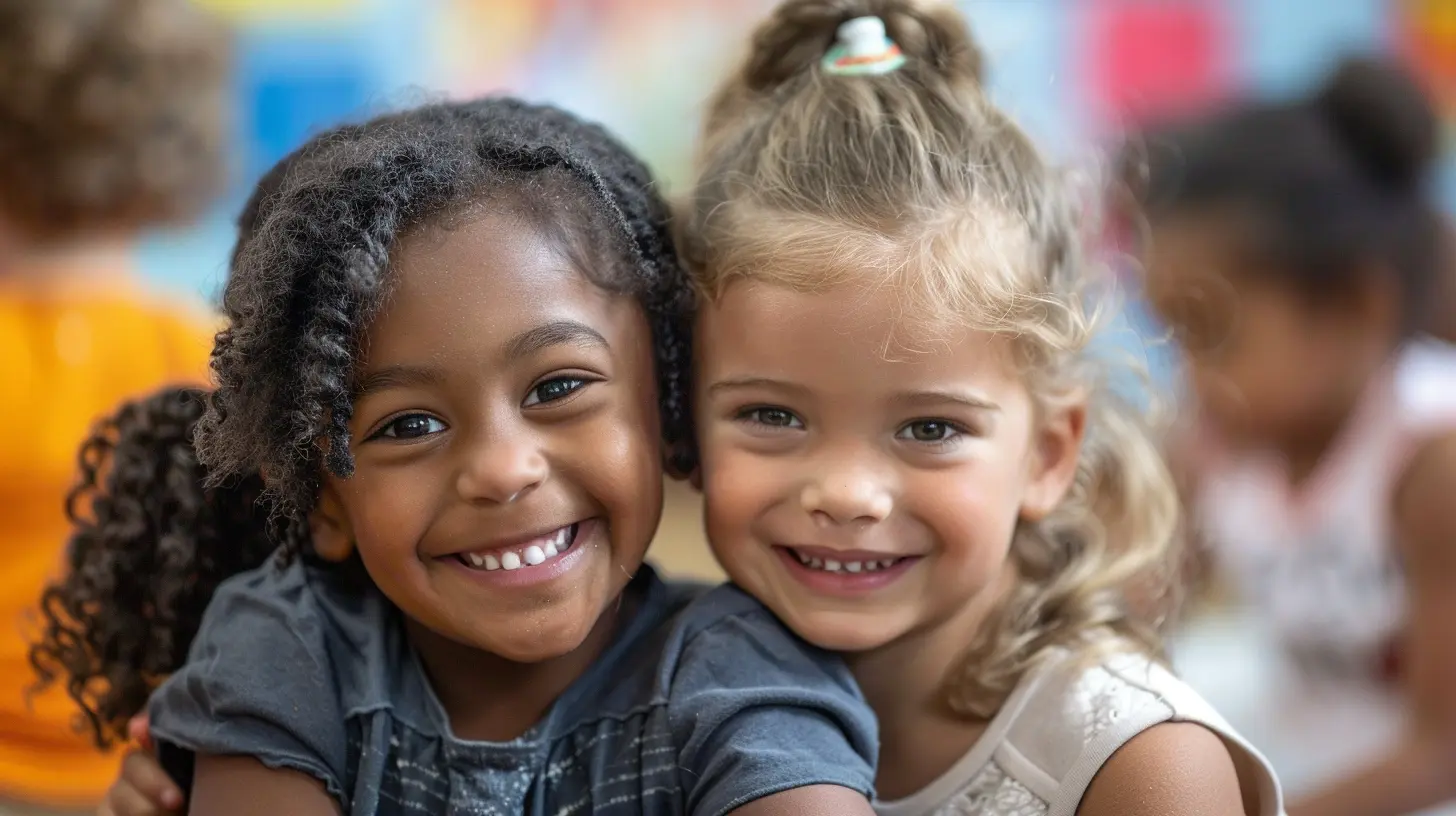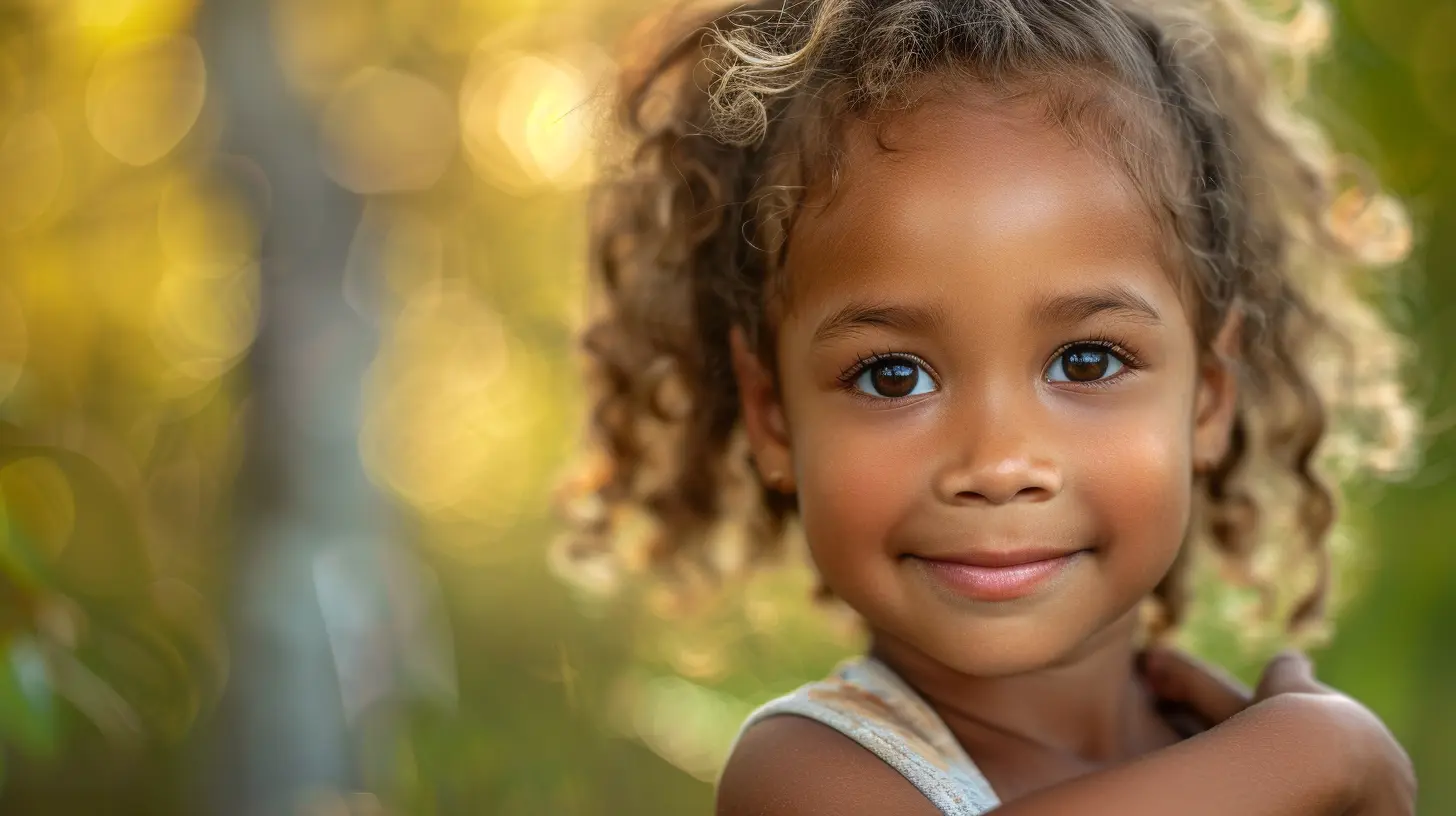18 September 2025
Empathy and kindness are the magic ingredients that help children grow into compassionate, thoughtful human beings. But these qualities don’t develop overnight; they need to be nurtured from an early age. Preschool is the perfect time to start shaping a child’s ability to understand others’ feelings and show kindness.
But how exactly do you teach such abstract concepts to young minds? Is it even possible to instill empathy in toddlers who are still learning to share their toys? Absolutely! And that’s what we’re diving into today. Let’s explore the best strategies to nurture empathy and kindness in preschoolers.

Why Are Empathy and Kindness Important in Early Childhood?
Before we get into the "how," let’s talk about the "why." Why should we focus on building empathy in preschoolers?
1. Empathy Builds Stronger Relationships
Kids who understand emotions are better at forming friendships. They can recognize when a peer is upset and offer comfort rather than ignoring or escalating the situation.2. Kindness Creates a Positive Environment
A preschool classroom where kindness is encouraged feels safer and more welcoming. Children are more likely to help each other, share, and be inclusive.3. Empathy Improves Emotional Intelligence
When kids understand emotions—both their own and others’—they learn to regulate their feelings better. This helps them cope with challenges in healthy ways.4. Kindness Leads to Long-Term Success
Research shows that children who develop empathy early tend to grow into successful, emotionally intelligent adults. They perform better in social settings, workplaces, and relationships.Now that we know why nurturing empathy in preschoolers is so essential, let’s discuss how we can do it effectively.

How to Teach Empathy and Kindness to Preschoolers
Teaching young children empathy and kindness isn’t about giving them long lectures. Instead, it’s about showing them, modeling it, and making it a part of their daily experiences.1. Model Empathy in Everyday Life
Preschoolers are like little sponges—they absorb everything they see. If you want them to be kind and empathetic, you need to show them what that looks like.- Use kind words and a gentle tone when speaking to them.
- Show concern for others in real-life and story situations.
- Acknowledge their feelings and validate their emotions.
Example: If a child is sad because they dropped their snack, instead of brushing it off, you can say, "I see you’re upset because your snack fell. That must feel frustrating." This teaches them to acknowledge emotions in themselves and others.
2. Encourage Perspective-Taking
Young kids naturally see the world from their own viewpoint, so helping them understand different perspectives is key to developing empathy.- Ask questions like, "How do you think your friend felt when you took their toy?"
- Role-play different scenarios where a child experiences different emotions.
- Read books that highlight diverse emotions and discuss how the characters feel.
Books like The Invisible Boy by Trudy Ludwig or A Sick Day for Amos McGee by Philip C. Stead are great for illustrating empathy.
3. Teach Through Stories and Picture Books
Storytelling is one of the most powerful tools for teaching empathy. When kids hear stories about characters experiencing emotions, they naturally put themselves in their shoes.- Choose books that highlight themes of kindness, sharing, and understanding.
- After reading, discuss the character’s feelings and choices.
- Ask questions like, "What would you do if you were in their place?"
4. Practice Acts of Kindness Daily
Small acts of kindness can help build a habit of caring for others.- Encourage children to help a friend who is struggling.
- Praise and acknowledge when they do something kind ("That was so thoughtful of you to share your toy with Tommy!").
- Create a kindness jar where kids add a bead or sticker every time they show a kind act.
Example: Setting up a "kindness challenge" in the classroom, where kids perform at least one kind act per day, can make kindness a fun and consistent practice.
5. Use Play to Teach Empathy
Young children learn best through play. You can use role-playing and cooperative games to enhance their ability to understand emotions.- Pretend play: Set up pretend scenarios like visiting the doctor, taking care of a pet, or helping a friend in need.
- Puppet shows: Use puppets to act out situations that require empathy and kindness.
- Team games: Encourage collaborative games where kids work together rather than compete.
Play allows kids to experience emotions and social situations in a safe, controlled environment.
6. Acknowledge and Label Emotions
Preschoolers are still learning to recognize and name their feelings. Helping them understand emotions makes it easier for them to relate to others.- Use emotion charts with faces showing different feelings.
- Encourage them to express how they’re feeling instead of acting out.
- Talk about emotions openly: "I see that you’re mad because it’s time to clean up. It's okay to feel that way."
By giving children the language to talk about emotions, we help them connect with their own feelings—and those of others.
7. Create a Kindness-Oriented Environment
A child’s surroundings play a huge role in shaping their behavior. A preschool environment that celebrates kindness makes it easier for children to practice it.- Post visuals of kind behaviors in the classroom.
- Implement a "kindness leader" of the day who encourages good deeds.
- Reward kind actions with praise instead of material rewards.
8. Help Kids Recognize and Address Others’ Feelings
A big part of empathy is being able to notice when someone else is feeling down and knowing how to respond.- Encourage kids to check on friends who are crying or upset.
- Teach them simple comforting actions like offering a hug or saying kind words.
- Discuss scenarios: "What would you do if your friend looked sad?"
By making these conversations a regular part of their day, kids learn to engage with emotions naturally.
9. Teach Conflict Resolution with Empathy
Preschoolers often experience conflicts—whether it’s fighting over a toy or feeling left out. These moments are perfect opportunities to teach empathy.- Guide them to express their feelings instead of reacting aggressively.
- Help them see the other child's perspective.
- Encourage solutions that consider both parties' feelings.
Example: If two kids are fighting over a toy, instead of forcing them to share, help them communicate: "I see that you both want the same toy. How can we solve this so that everyone is happy?"
10. Encourage Gratitude and Appreciation
Kids who recognize and appreciate kindness are more likely to practice it themselves.- Create a gratitude circle where kids share things they’re thankful for.
- Encourage thank-you notes or drawings for acts of kindness.
- Recognize and appreciate their kind behaviors.
When kids learn to appreciate kindness, they start seeing it as something valuable and worth spreading.

Final Thoughts
Nurturing empathy and kindness in preschoolers might seem like a big task, but it’s absolutely doable with consistency, modeling, and practice. Remember, kids learn from what they see, hear, and experience daily. By creating an environment filled with compassion, encouragement, and understanding, we help shape the next generation of kind and empathetic individuals.So, the next time you see a preschooler struggling to understand a friend’s feelings, take a moment to guide them. Every small effort today creates a more compassionate world tomorrow.









Clementine Strickland
What a wonderful article! It's heartwarming to see the importance of nurturing empathy and kindness in our little ones. Simple acts of kindness can blossom into beautiful habits as they grow. Thank you for sharing these insightful tips—every small effort counts in shaping their compassionate hearts!
January 11, 2026 at 8:34 PM